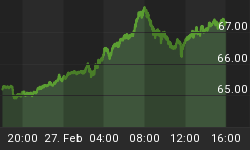If you are like many investors, you may spend at least some time trying to get a sense of where stocks (and perhaps bonds too) are heading. Once you form an opinion, you may have enough confidence in its correctness that it may cause you to modify your investment choices. Or, on the other hand, you may elect to "stay the course," believing it unlikely that you can outguess the movements of the markets.
I have both good and bad news in regard to this preoccupation with what may lay ahead many of us have. Let's start with the bad news first and I'll get to the good news at the end.
No matter what information you bring to bear on your investments, one can never expect to find just one "key" that will reliably unlock the door to divining the future with regard to which investments might do well and which might suffer. Try as you may, the concept of simply focusing on one "crucial" factor won't consistently work, although it might some of the time which will only serve to perpetuate the fallacious thinking.
Rather, if you are going to be successfully in the right investments at the right time and generally avoid the wrong investments, you must develop a whole "hierarchy of investing principles" in the hopes that, out of a handful of principles, more will turn out to have worked than those that didn't. Such a tactic should put you at least somewhat ahead of the game.
However, since the majority of people don't really feel able to do this, nor want to take the time or effort to try, then it's little wonder that many will turn to using either a single unchanging asset allocation or index investing, or both, since these seem to promise to achieve good results most of the time.
But as you know, one constant asset allocation as well as index investing can only achieve whatever degree of good of results as the overall stock (and/or bond) markets allow. For example, a constant, unmodified high allocation to stocks will only be most successful when stocks are doing well. If they aren't, returns will suffer, at least for as long a period as stocks underperform other available investments, such as bonds.
Likewise, in times of poor overall returns, index investors have to be prepared take their lumps. Fortunately, for approaching 6 years now, there have been very few lumps dished out. But going back to earlier periods, there were lots of bad market years to cut down longer-term returns, strewn seemingly unpredictably among the good years.
The above two types of investing can also enable one not have to "slice and dice" the market into different assets, categories and sectors. The broad index products like "total market" or "balanced" funds relieve one from having to make a lot of choices.
Given how hard it is to find a single key to unlock better than average returns, and certainly the multiple ones probably necessary for real success, the apparently haphazard results dished out in the world of returns would appear to make following any investment approach or advice highly unlikely to surpass the simplicity of these same two types of investing.
And, if one has his/her sights on being highly invested in stocks only when the markets are going up, while being mainly out of stocks when the market is going down, accept this reality: It's going to be next to impossible.
Even if one finds their own above mentioned useful "hierarchy of investing principles," the best one can hope for is to be able to achieve what appears to be a small degree of coming out ahead. Fortunately, and here's the good news, even a small degree of better performance than otherwise achievable can compound over years of investing into a huge advantage.















